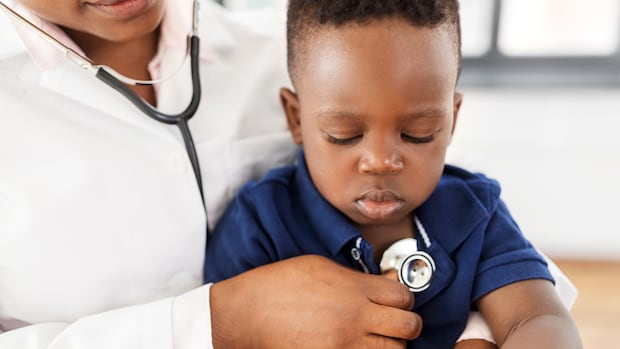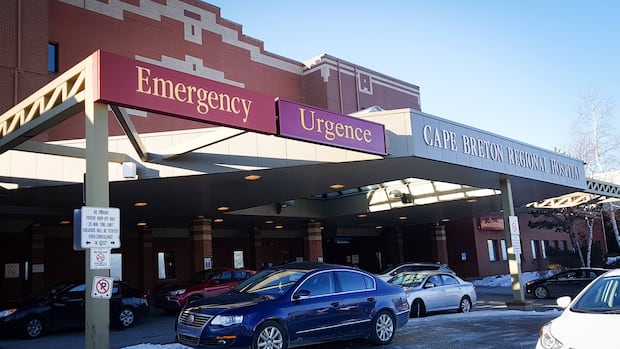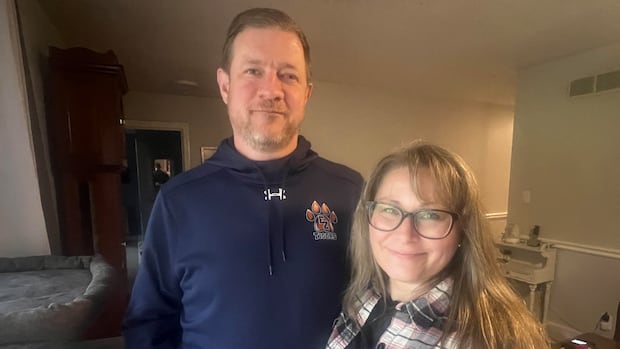Manitoba plans to update its RSV immunization program this fall, but the province is not committing to following several other provinces and territories in extending the preventative treatment to all newborns and young children.
Respiratory syncytial virus mainly infects infants and young children and can cause coughing, runny nose, fever and loss of appetite, and can affect breathing. In severe cases, it can lead to hospitalization and even death.
Samantha Gould remembers how scary it was in 2022, when her daughter Isabelle caught the virus. It presented as a common cold but quickly took a turn for the worse.
Isabelle, who was two years old at the time, was rushed to Winnipeg’s Children’s Hospital, where she was admitted and given oxygen.
“I was informed that it was a good thing I took her in, because if I didn’t and I put her down for her nap in the afternoon, I most likely would not have an Isabelle anymore,” said Gould.
Three years later, Gould vividly remembers the sounds of the hospital.
“I hear the machines go off, but mainly when I close my eyes to go to sleep, I hear her screaming, ‘Mommy.'”
Gould believes the severity of Isabelle’s symptoms could have been mitigated if she was able to get a preventative RSV shot as an infant, but says she was never given the option.
“If it’s a simple cold that can be turned into literally a life-or-death situation, I think parents would want to have their kid maybe vaccinated.”
As of Oct. 1, Manitoba’s RSV immunoprophylaxis program will make the switch from providing palivizumab, a monthly antibody treatment, to nirsevimab, a single-dose, injectable monoclonal antibody treatment.
However, it will still only be available to infants deemed to be at high risk from RSV infection, such as those with heart or lung disease or those who are born very early.
A provincial spokesperson says on average, the program annually enrolls about 300 Manitoban high-risk infants and children.
The move comes more than a year after Canada’s National Advisory Committee on Immunization recommended nirsevimab be used over palivizumab.
According to NACI, nirsevimab led to a lowering of hospital admissions associated with RSV, and reduced medically attended RSV respiratory tract infections in healthy infants by 80 per cent.
The federal agency also recommends health systems across the country prioritize vaccinating children at severe risk, and advises eventually working toward “a universal RSV immunization program for all infants.”
Other provinces offering universal coverage
Since last fall, Quebec, Ontario and Nunavut have offered nirsevimab to all infants.
In the Northwest Territories, all babies born during RSV season and infants up to three months old during the season can get the antibody treatment. All children up to eight months old during the RSV season are eligible in Yukon.
Nova Scotia is also now using nirsevimab, and a spokesperson told CBC that beginning this fall, the province will expand its program to also offer it to all infants under eight months old during RSV season. Saskatchewan is also broadening its program to include all babies born during RSV season.
WATCH | RSV shot not available everywhere:
A new shot protecting infants against respiratory syncytial virus (or RSV) is available in Canada, but only Ontario, Quebec and the three territories offer it to all newborns after the drug maker and the remaining provinces could not reach a pricing deal.
Barbara Porto, an assistant professor in the department of medical microbiology and infectious diseases at the University of Manitoba, is happy to see this province switch to a more effective preventative treatment, but doesn’t think the change goes far enough.
“It’s a highly infectious virus,” said Porto, who has been studying RSV for 15 years.
Most children will be infected with RSV by the age of three, she said. And while infants and young kids with existing medical conditions are more vulnerable, a child considered medically healthy can still end up in hospital.
“We actually don’t know which babies will go on to develop a severe disease, or which babies will have only a mild disease and recover soon after getting infected,” said Porto, which is one reason she wants to see all infants protected.
“During the winter, we see a huge spike in hospital admissions caused by RSV in babies and infants,” she said. “This will keep causing a huge burden in our health-care system.”
‘Something every baby should get’
Parent Ashton Kehler said the province wouldn’t add her daughter, Lily, to the RSV prevention program in 2017, because she was deemed not “vulnerable enough,” even though she spent 77 days in the Children’s Hospital neonatal intensive care unit after she was born.
Lily had a benign mass on the back of her neck. Once doctors were able to remove it, she was considered medically healthy.
“They had decided that she was not immunocompromised, so they felt that she was healthy enough that she did not require it,” Kehler said.
She was told the only way to get the preventative shot would be to cover the roughly $1,000 cost on her own — an expense Kehler couldn’t afford. Lily left the hospital without getting the antibody.
Five days later, Kehler was back at the hospital. Her newborn had caught RSV.

“It was really scary. We had already gone through so much … and then finding out after that, something they refused to give her could have prevented it, just made the whole situation a lot worse,” she said.
Lily was intubated and sedated in the pediatric intensive care unit for three days, then moved to the neonatal ICU for 11 more.
“I think that the shot definitely would have made a difference,” said Kehler. “I’m sure she still would have gotten a cold, but I don’t think it would have been as severe as it was.”
She thinks the fact the province isn’t providing universal coverage shows it isn’t taking the virus seriously.
“Knowing that it is an option in other places, it’s actually really disappointing,” Kehler said. “I think it’s something every baby should get.”
The Manitoba government plans on updating its RSV immunization program this fall, but the province is not committing to following the majority of Canada in extending the preventative treatment to all newborns and young children.








